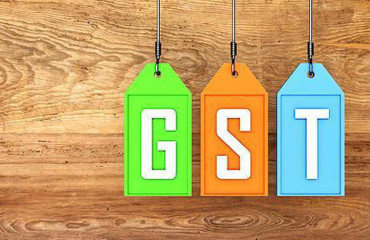
Union Finance Minister Nirmala Sitharaman will present the Interim Budget 2024-25 on February 1. The full Budget for FY25 will be presented after the formation of the new government following the general elections. The Interim Budget will contain details about the estimated receipts and the expenditure of the government until the formation of the new government.
Union Finance Minister Nirmala Sitharaman will present the Interim Budget 2024-25 on February 1. The full Budget for FY25 will be presented after the formation of the new government following the general elections. The Interim Budget will contain details about the estimated receipts and the expenditure of the government until the formation of the new government.
Here is what experts expect for the education sector from the Interim Budget:
Viksit Bharat
Galgotias University CEO Dr Dhruv Galgotia said he eagerly anticipates a budget that not only prioritises education but harmonises seamlessly with the ambitious Viksit Bharat vision. Galgotia further expressed the crucial need for a budget that integrates AI and technology into education.
Also read: Budget 2024 expectations: From human resource investments to fulfilling NEP goals, here's what education sector needs
Infinity Learn CEO Ujjwal Singh said, "The onus of Viksit Bharat 2047 rests on the shoulders of our youth in India…. Bridging the digital divide is imperative, and we propose fortifying the digital backbone of educational institutions across the nation. Our plea includes substantial support to make education accessible and inclusive for all."
Also read: Budget 2024 Live Updates: Reform, Perform, Transform remains Centre commitment, says President Murmu
"We seek tax exemptions and lowered GST rates, aligning with our mission to narrow the educational gap. Additionally, reduced and subsidised interest rates on educational loans are crucial for fostering optimal growth and development within the education sector," he added.
Online higher education
According to UNIVO Education CEO Siddharth Banerjee, given the importance of online education, the government will surely consider relevant tax exemptions and lower GST rates to bridge the skill gap, along with encouraging reduced and subsidised interest rates on educational loans. "Online higher education in India goes across socio-economic strata, and metro and tier 2-3-4 cities and we look forward to continued support from the government," he noted.
Also read: Budget 2024: Finance Minister Nirmala Sithraman set to match Morarji Desai's record of budget speeches
NEP 2020
Chairman and co-founder of NIIT Group Rajendra S Pawar said, "I look forward to the forthcoming budget with the expectation that it will align with the National Education Policy 2020. A substantial increase in budgetary allocation for education, from 2.9% to 6% of the GDP, is crucial for the policy to deliver its full potential and attain national objectives on the path to global leadership."
Also read: Budget 2024: No huge expectations of long-term market impact, says Pradeep Gupta of Anand Rathi group
Mid-day meal scheme
Chairman of the Akshaya Patra Foundation, Madhu Pandit Dasa said, "We suggest further enhancements to the Mid-Day Meal programme in the upcoming budget. An extension of the meal scheme to include breakfast, in addition to the current lunch offerings, would greatly benefit the children, providing them with the necessary energy and nutrition to start their day. Additionally, expanding the scope of this programme to cover students in higher grades, particularly 9th and 10th."
Also read: Budget 2024: From investments in skill development to infrastructure, what education sector expects ahead of elections
Madhu Pandit Dasa further added, "We recommend that the government facilitate the provision of millets through the Food Corporation of India at subsidised rates."
In the financial year 2023-24, the education sector received its highest-ever allocation of ₹1.12 lakh crore against FY 2022-23 budget allocation of ₹1.04 lakh crore. FY 2023-24 budget included ₹68,804 crore allocation for school education, ₹44,094.62 crore allocation for higher education and ₹37,453 crore allocation for the Samagra Shiksha Abhiyan.
